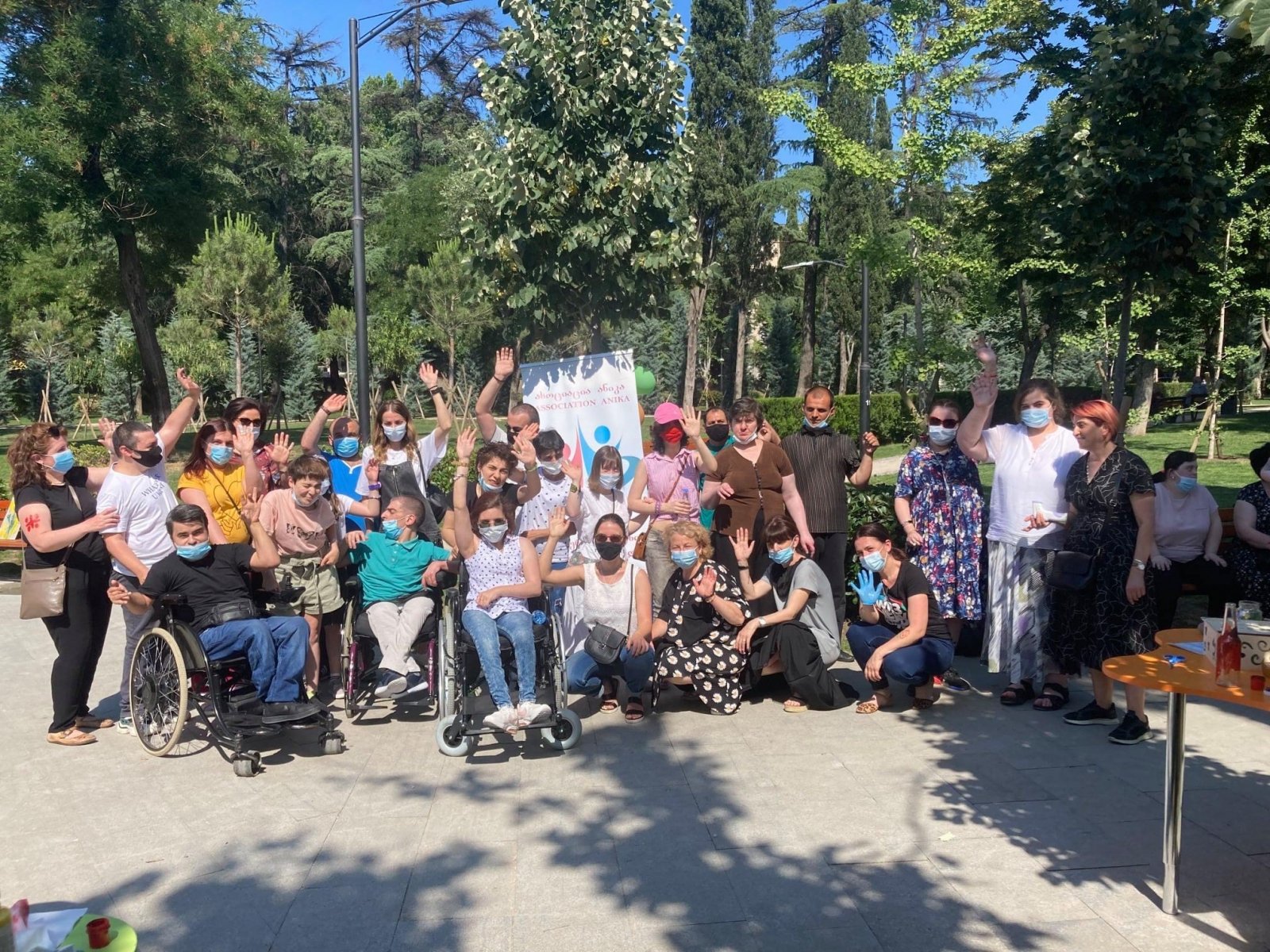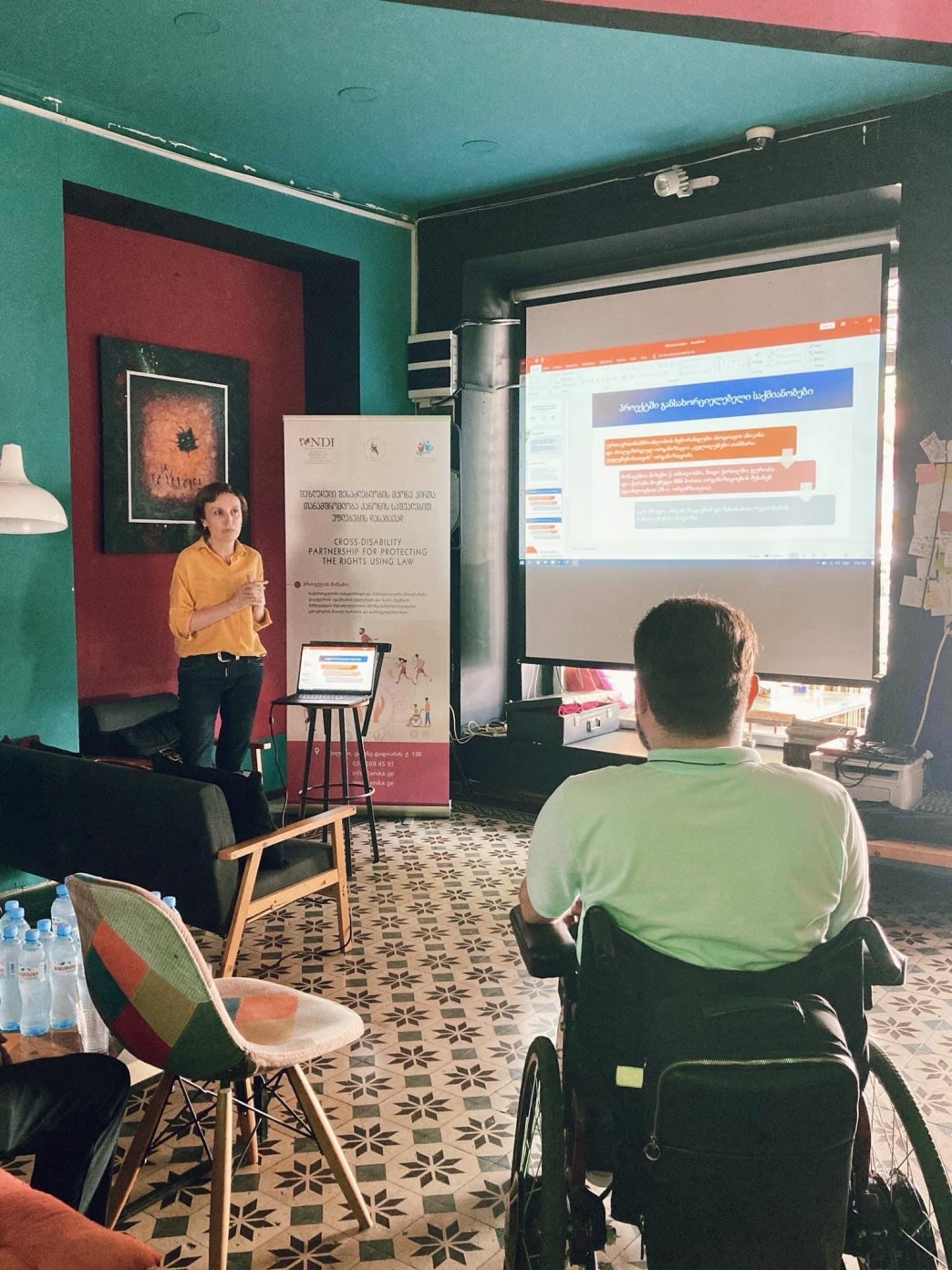
SHARE
Partner Profile: Association Anika
In support of NDI’s commitment to increasing the inclusion of marginalized populations in political processes, we’re highlighting the essential work of partners who are at the forefront fighting for greater levels of equality, shifting norms and perceptions, and reducing barriers to political participation for persons with disabilities.
NDI interviewed Association Anika, a partner organization established by parents of children with disabilities that promotes the rights of people with disabilities and their families in Georgia by ensuring compliance with laws and the Convention on the Rights of Persons with Disabilities (CRPD). The Association told us how they support persons with disabilities to be leaders in the development of laws that impact their lives.
What does accessibility mean to you and/or your organization?
Accessibility for us means that people with disabilities have equal opportunities to be active citizens in all spheres of public life; participate in the political life of the country; make choices; be elected and decide for themselves. Accessibility also means being able to be involved in decision-making processes in all areas of the country's development, be employed, have access to all levels of education, have a family and more.
Describe some of the ways that people with disabilities (PWDs) in your country are participating politically. What challenges or barriers to political participation remain?
The participation of people with disabilities in political processes in Georgia is very low. There is only one representative in the Georgian legislature with disabilities and no people with disabilities within executive structures or local government bodies. People with disabilities vote, but turnout is low. Lack of education, knowledge and competencies, as well as societal stereotypes and inaccessible infrastructure, are persistent barriers to political participation for persons with disabilities. Disabled persons organizations mainly focus their efforts on securing social support and services. Very few organizations work to promote the participation of people with disabilities in political processes.
How is your organization working to address these barriers/challenges and to eliminate discrimination against PWDs in your country?
Association Anika works in different areas including education, social inclusion, employment and self-advocacy. All of these areas are focused on developing the independent living skills of people with disabilities. The Association also promotes the development of disabled persons organizations operating across Georgia, teaching them ways to participate in decision-making processes and advocate for various issues. The Association prepares and provides stakeholders with relevant tools to push for the enforcement of the Law of Georgia on the Rights of Persons with Disabilities and CRPD.
Anika 2.jpeg

As the world continues to battle COVID-19 two years later, has the pandemic presented any opportunities for your organization and/or for PWDs in your country?
The pandemic has certainly had a negative impact on both our organization and people with disabilities, although it has provided some opportunities. We were able to enhance our online work capabilities and equip children and young people with disabilities with laptops, tablets and access to the internet, as well as build their digital literacy skills. In addition, we’ve been able to employ young people with disabilities through remote work.
In the past year, can you briefly share a success story from your organization’s contribution to strengthening the disabled persons movement in your country or within your region?
With financial support from NDI, we launched a one-year project in collaboration with the Changes for Equal Rights coalition to support the implementation at the municipal level of the obligations undertaken by the state under the new Law of Georgia on the Rights of Persons with Disabilities. This project included an analysis of the law and its mandates, the production of a guidebook on the law, and information sessions for persons with disabilities and municipal leaders on the components of the law. In addition, the Association conducted a gap analysis of the law and prepared recommendations on amendments which were delivered to parliament in four regions including Tbilisi, Shida Kartli, Guria and Adjara. Throughout the program, the Association prioritized the involvement of persons with disabilities which was the major critique of parliament in the development of the law itself.
What impact has NDI’s partnership had on your organization?
Through NDI’s partnership we were able to raise the visibility of the Association and leverage this visibility to move forward our work at the regional level. The Association also strengthened its capacity in relation to strategic communications, monitoring and evaluation and digital security.


